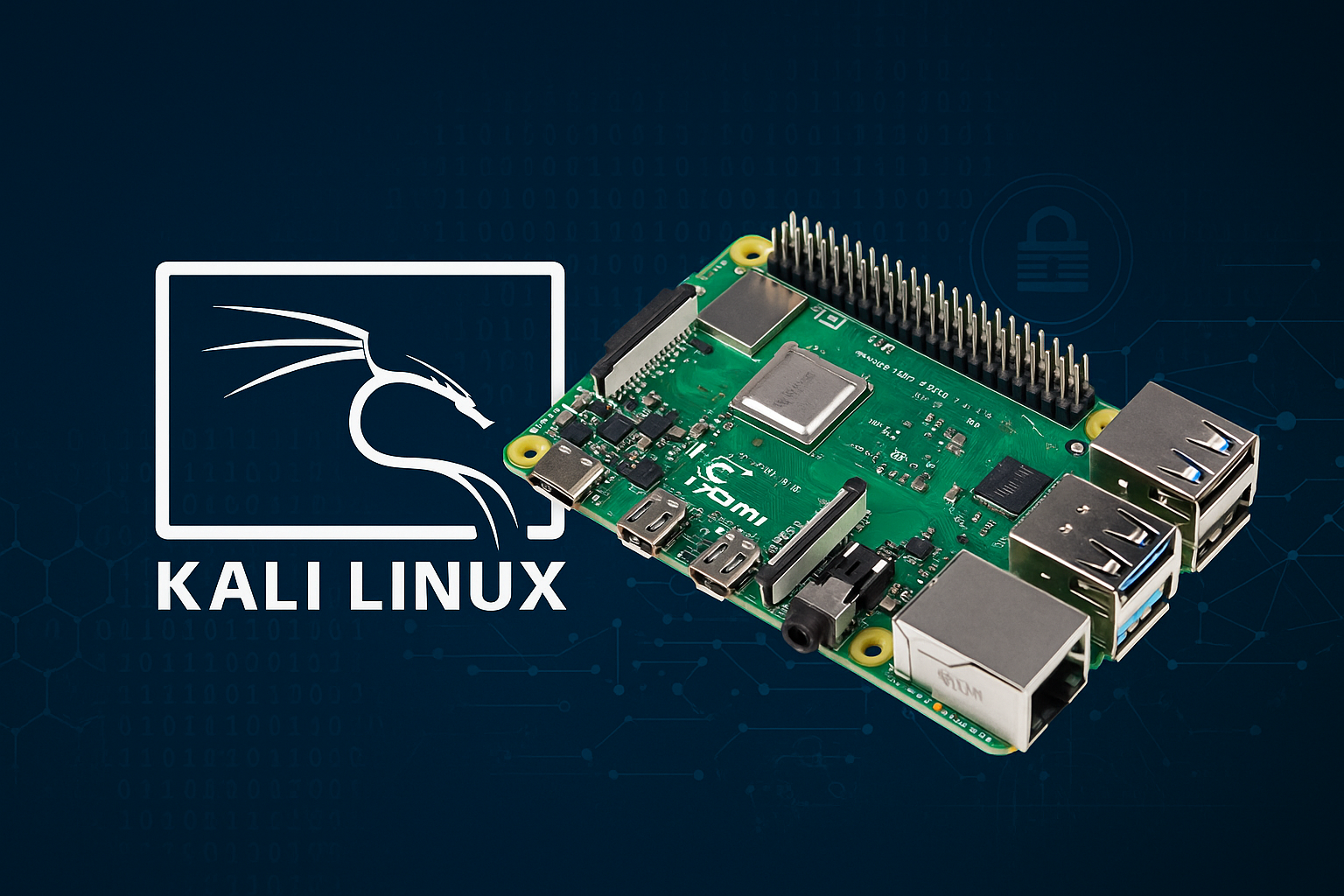Raspberry Pi Ethical Hacking: Comprehensive Network Security Testing with Kali Linux

Cybersecurity professionals rely heavily on ethical hacking tools to assess vulnerabilities and strengthen defenses. A Raspberry Pi, coupled with Kali Linux, offers an affordable, portable, and robust solution for comprehensive network security testing. This guide walks you through setting up a Raspberry Pi to perform advanced ethical hacking tasks, including network scanning, vulnerability assessment, and even basic penetration testing.
What You'll Need
- Raspberry Pi 4 (Recommended: 4GB or 8GB RAM)
- MicroSD Card (32GB or higher)
- Wi-Fi or Ethernet Connection
- Power supply
- Case (recommended for portability)
- USB keyboard and mouse (optional but recommended for initial setup)
- HDMI monitor (optional but recommended for initial setup)
Step 1: Install Kali Linux on Raspberry Pi
Download Kali Linux ARM from the official Kali Linux website. Choose the Raspberry Pi variant and flash it onto your microSD card using Balena Etcher.
Insert the SD card into your Raspberry Pi, connect peripherals, and power it on.
Step 2: Initial Kali Linux Setup
Log in with the default credentials:
- Username: kali
- Password: kali
Immediately update your system:
sudo apt update && sudo apt upgrade -y
sudo rebootAfter rebooting, change your default password:
passwdStep 3: Familiarizing with Kali Linux Tools
Kali Linux comes pre-installed with many cybersecurity tools:
- Nmap for network scanning
- Wireshark for network packet analysis
- Metasploit for penetration testing
- Nikto for vulnerability assessment
Install any additional necessary tools:
sudo apt install nikto wireshark metasploit-framework -yStep 4: Comprehensive Network Scanning with Nmap
Create a detailed Nmap scanning script to explore your network thoroughly.
Create and edit the file:
nano comprehensive_scan.shPaste the following content:
#!/bin/bash
if [ -z "$1" ]
then
echo "Usage: ./comprehensive_scan.sh <network-range>"
echo "Example: ./comprehensive_scan.sh 192.168.1.0/24"
exit 1
fi
echo "Starting comprehensive network scan on $1"
nmap -sS -sV -O -A -T4 $1Save and make the script executable:
chmod +x comprehensive_scan.shRun the script:
./comprehensive_scan.sh 192.168.1.0/24Step 5: Vulnerability Assessment with Nikto
Nikto helps identify common vulnerabilities in web servers:
Scan a specific IP or URL:
nikto -h 192.168.1.10Step 6: Penetration Testing with Metasploit
Launch Metasploit:
msfconsolePerform a basic scan within Metasploit:
msf6 > use auxiliary/scanner/portscan/tcp
msf6 auxiliary(scanner/portscan/tcp) > set RHOSTS 192.168.1.10
msf6 auxiliary(scanner/portscan/tcp) > runAnalyze the scan results and use suitable exploits responsibly.
Step 7: Capturing Network Traffic with Wireshark
Launch Wireshark from the command line:
sudo wiresharkSelect your network interface to begin capturing traffic. Analyze packets to understand data flow, detect anomalies, or inspect for malicious activity.
Ethical Considerations
Always obtain explicit permission before conducting any security testing on networks. Unauthorized scanning and penetration testing are illegal and unethical. This guide is strictly for educational and authorized cybersecurity assessments.
Conclusion
Your Raspberry Pi, combined with Kali Linux, equips you with powerful tools for ethical hacking, network scanning, vulnerability assessment, and penetration testing. Regular use of these techniques enhances your cybersecurity skills and significantly boosts your organization's security resilience.
Stay ethical, stay secure!

